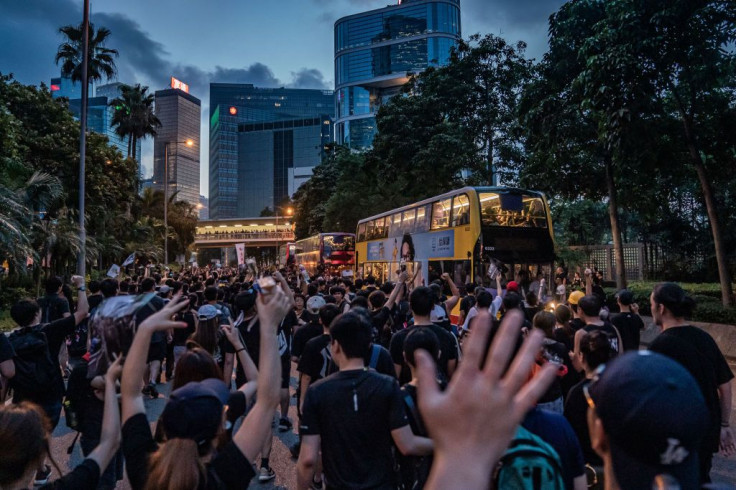China Scrambles To Deliver Hong Kong Strategy As Island Braces For Another Sunday Of Protests
Chinese officials on the Mainland are under pressure to devise a strategy that will quell the violent Hong Kong protests over a controversial extradition bill that Hong Kong leader Carrie Lam has called “dead” but has yet to be formally withdrawn. More protests are expected this weekend.
The protests have thrown the former British colony into chaos with violent attacks against the police and government offices. Protesters claim that the extradition bill will allow Chinese authorities to arrest suspected lawbreakers and take them back to the Mainland on trumped-up charges where they could be subject to torture and other human rights abuses. Several members of the Hong Kong Police Force have sustained injuries while trying to maintain order.
The Chinese will have to come up with an immediate short-range plan to put an end to the violence as well as a longer-range plan that may drastically change the way to manage what China calls a Special Administrative Region (SAR). Hong Kong is officially part of China but operates like a separate country in several ways. The U.K. handed over sovereignty of Hong Kong to China on July 1, 1997.
There has been speculation that China will use the People’s Liberation Army (PLA) to achieve some stability. There is a PLA garrison in Hong Kong that can quickly be put into action if needed. The Chinese feel, however, that the weary Hong Kong Police force is the most critical, so the involvement of the PLA is highly unlikely.
Chinese leadership was surprised that people dispatched to gather information about the size and intensity of the protests failed to accurately assess the situation. Today online reported that a Chinese adviser who requested anonymity said, “The central leadership wasn’t alerted until the situation went out of control … There will surely be a revamp and overhaul of the system afterwards.”

The Chinese are also wary that there might be foreign agents at work whose purpose is to destabilize China’s overall development, reported the South China Morning Post. Their strategy for now is to wait it out and see if the protests are an isolated incident or the work of enemy agents.
Other concerns by the Chinese include the security risks to President Xi Jinping visiting Macau for the 20th anniversary celebrations of its reunification with the Mainland later this year. Macau is about 60 km from Hong Kong separated by the Pearl River Estuary.
China is in the middle of a trade war with the United States and is preparing for the approaching 70th anniversary of the founding of the People’s Republic. The need to agree among themselves how best to handle the situation in Hong Kong and make the necessary changes to move ahead is the advice given by an unnamed government scholar.
© Copyright IBTimes 2024. All rights reserved.











